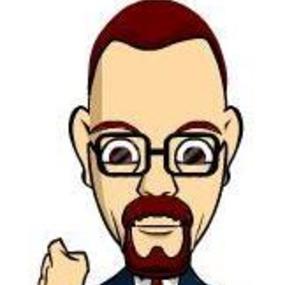Digital technology: The next frontier in healthcare delivery in post-Covid India
The pandemic accelerated the humanizing of digital technology – it brought people together at a time when physical distancing was legally mandated in many parts of the world.
One year on, digital solutions – in every sector – have truly come of age. The pandemic has ushered in a new era and meaning for digital tech, as organizations, businesses, and institutions began to function through virtual mediums almost exclusively.
Perhaps most crucially, it demonstrated just how powerful digital interventions can be in last-mile delivery of essential services, particularly in hard-to-reach, underserviced areas, and how they should be leveraged even in times of normalcy without such severe supply chain disruptions.
Nowhere is this more apparent than in health care services. In the early months of lockdown in India, several essential health services were disrupted, and one of the hardest hit was maternal health care.
Childbirth stops for nothing and no one – the ecosystem had to adapt almost overnight to meet the new challenges of maternal health care delivery. For instance, a quality improvement and assurance program called Manyata, which trains health care staff in private maternal care facilities on a set of 16 evidence-based clinical standards for quality and safe care, moved its entire training and certification architecture online to continue providing this crucial capacity-building to under-resourced nursing homes.
And thus, digital interventions came to the rescue.
With the immediate challenges of the pandemic addressed by a plethora of digital innovations, we must retain this momentum to chart a path for realizing India’s Universal Coverage Health goals.
The digital ecosystem offers path-breaking and efficient solutions for accelerating the three pillars of UHC – availability, affordability, and quality – by advancing transformations in health care on both the demand and supply side.
Digital tech can be a game-changer. In terms of supply, it is enabling reach and scale at levels that were previously unimaginable.
Digital solutions can increase the penetration of quality care mechanisms to remote parts of the country through telemedicine and remote training sessions for health care staff.
On the demand side, tech has tremendous potential to amplify grassroots voices from beneficiaries and patients, both as a means to incorporate their feedback in designing healthcare solutions (or improving existing ones), and encouraging demand for affordable, high-quality care.
However, while leveraging digital interventions for improving healthcare and service delivery is crucial, it cannot be done in silos.
The pandemic has exposed fragilities in the very foundations of our healthcare ecosystem. We must therefore create strong structural support that can enable availability, affordability, and quality to become all-pervasive, by rallying the health ecosystem and incentivizing the participation of both private and public sector.
Perhaps most crucially, the private sector needs to be integrated into the total health system in order to complement and augment government efforts in strengthening the health care ecosystem. The important role of the private sector was amply reinforced in the aftermath of the Covid-19 pandemic, as the government turned to private sector facilities to help in its frontline response to the virus. So, too, with building a digitally-enabled health ecosystem.
The visionary National Digital Health Mission (NDHM) is poised to revolutionize Indians’ experience of health care access and delivery. However, for the NDHM to achieve scale and speed of impact, extensive private sector involvement is crucial.
A strengthened and integrated health system must put its weight behind digital interventions if we hope to facilitate a transformation in the months and years ahead.
read the original , unedited version at https://timesofindia.indiatimes.com/blogs/voices/digital-technology-the-next-frontier-in-healthcare-delivery-in-post-covid-india/














Or Friends Aaj Ma Apko Samna Ak Asi Hi Invasment Information Ka Sath Aaya Hu. Aaj Ham Baat Karga TATA Ki Scheme Ka Bara Ma Jiska Anusara Life ma Ak Bar 15,000 Karka Ap 1.21 Crore jitna big amount pa sakta hai. Yadi Ap Apna Future Ka Liya Invast Karna Chata Hai And Ap Assi Hi Scheme Ki Search Kar Rha Hai Jisma Sirf Ak Bar 15,000 lnvast Karka Bada Amount Pana Chata Hai Too Ap TATA Mutual Fund Ki Iss Scheme Ma Ak Bar 15,000 Invast Karka 1.21 Crore Bna Sakta Hai.
https://indiasno1finance.blogspot.com/2022/04/Jama%20Kariya%2015000%20And%20Muturity%20Par%20Paya%2012116904%20Rupee%20Scheme%20By%20TATA%20Mutual%20Fund..html
<a href=https://indiasno1finance.blogspot.com/2022/04/Jama%20Kariya%2015000%20And%20Muturity%20Par%20Paya%2012116904%20Rupee%20Scheme%20By%20TATA%20Mutual%20Fund..html>Ak Bar Jama Kariya 15,000 And Muturity Par Paya 1,21,16,904 Rupee Scheme By TATA Mutual Fund In Hindi</a>